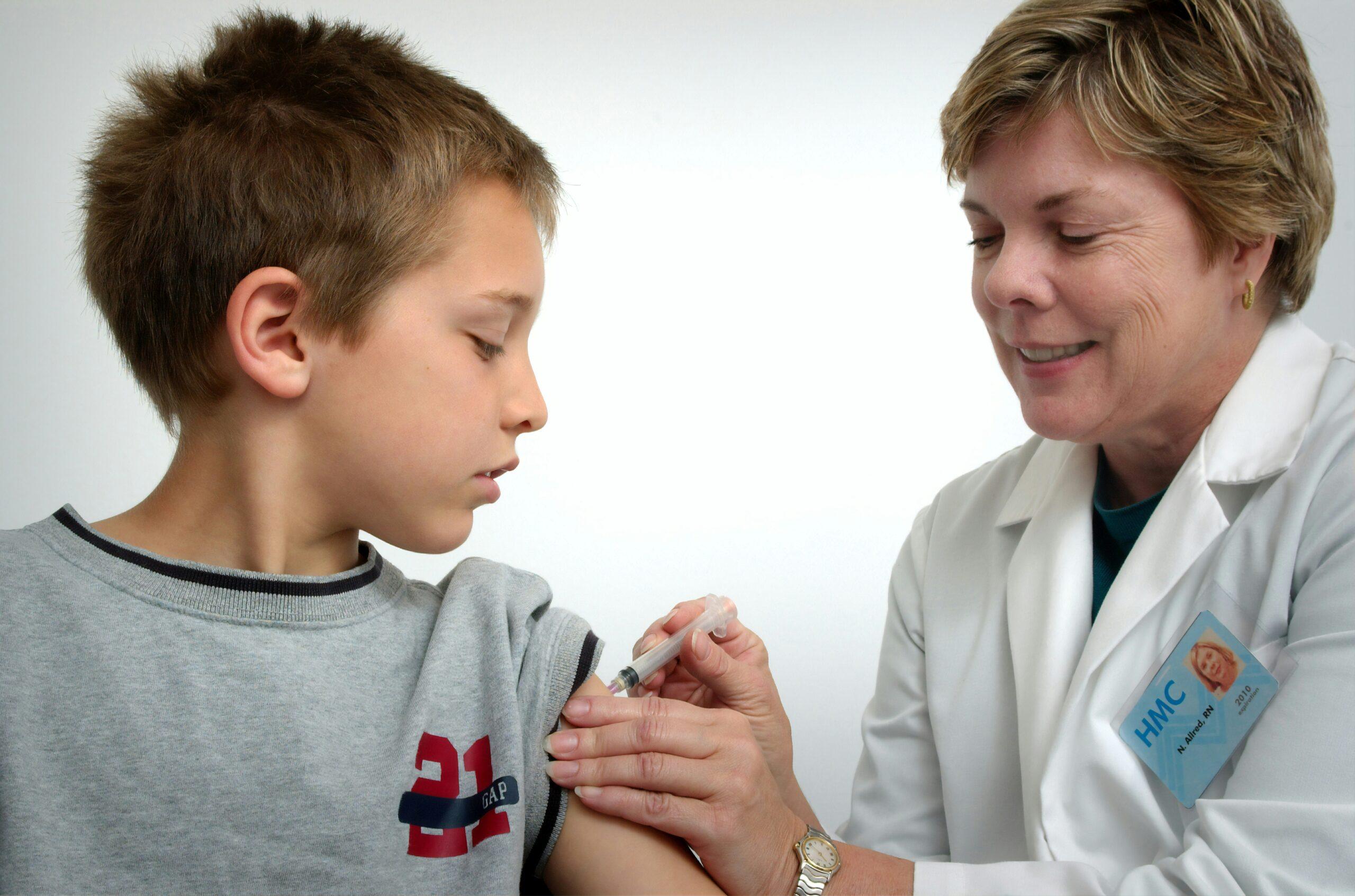Children tend to touching everything as they discover the world around them.
Unfortunately, this drive for exploration doesn’t come with a supernatural power to deflect germs. This might help explain why children are two-to-three times more likely than adults to get sick with influenza. On average, one in three children in the United States is affected by the flu virus annually.
Because schools are an excellent place for flu viruses to attack and spread, families with school-age children have more infections than other families, with an average of one-third of the family members infected each year. And due to close contact among children in school, home and daycare settings, some kids seem to be sick all winter.
Experts believe that compared with adults, children do not have as much natural immunity to influenza because they have had less lifetime exposure. In addition, children are not just more susceptible to catching the virus, they are more vulnerable to serious flu complications, such as pneumonia and dehydration, which may require hospitalization.
According to the Centers for Disease Control and Prevention (CDC), children at high risk for flu complications are:
- Children 6 months through 18 years of age.
- Children 6 months and older with chronic heart or lung conditions, including asthma.
- Children 6 months and older who needed regular medical care or were in a hospital during the previous year because of a metabolic disease (like diabetes), chronic kidney disease or a weakened immune system.
- Children 6 months to 18 years of age who are on long-term aspirin therapy.
Parents are not alone in this battle against the flu. School nurses stand on the front lines at school, where flu can spread the most among children, working to educate parents, kids and educators. To help with this task, the National Association of School Nurses (NASN) has developed an online educational campaign called Don’t Get Sidelined by the Flu to raise awareness about flu prevention, symptom recognition and treatment options.
Fighting the Flu
Protecting children from the uncomfortable and sometimes dangerous repercussions of influenza should be addressed often and thoroughly. To fight the flu, the CDC recommends a “Take 3” approach that includes vaccination, good hygiene and antiviral medication.
#1 Vaccination
The vaccine is the first line of defense against the flu. According to the CDC, anyone who wants to reduce the chances of getting the flu should be vaccinated. However, it is especially important that young children, children with chronic illnesses and people who live with or care for kids, get vaccinated. This year, the CDC has expanded its vaccine recommendations to include all children, ages 6 months to 18 years. While October and November are the best times to get vaccinated, it’s never too late in the flu season to get the flu shot. Visit cdc.gov for more information and to find a location where the vaccine is available in your area.
#2 Good Hygiene
Practicing good hygiene habits is one of the best ways to help control the spread of the flu. Talk to your child about practicing smart health habits, such as washing hands frequently with soap and warm water for at least 20 seconds; covering mouths and noses with tissues when coughing, or sneezing into the crook of the elbow; and not sharing drinks or utensils with others, particularly at school.
#3 Antiviral Medication
Prescription antiviral medications are an important adjunct to vaccination for influenza prevention and treatment. The CDC recommends two antiviral medications: oseltamivir (Tamiflu) and zanamivir (Relenza). If your child experiences flu symptoms, like those mentioned on the next page, contact your child’s doctor immediately for an accurate diagnosis.
A doctor can prescribe medicines like Tamiflu or Relenza to help lessen your child’s number of sick days, and potentially reduce the risk of complications. Tamiflu, available as a capsule or liquid suspension, is approved to both treat and prevent the flu in people 1 year of age and older. Relenza, an inhaled medication, is approved to treat the flu in people 7 years and older and to prevent the flu in people 5 years and older. As these medications should be taken within 12-48 hours of symptom onset, it is imperative to act fast and see a doctor at the first signs of symptoms.
Antivirals may be prescribed to children and adults who have been exposed to the flu to help them avoid catching it. For example, if one person in the family has the flu, other family members can be given antiviral medication to keep the virus from spreading to siblings, parents or grandparents.
Under a doctor’s care, antivirals may also be administered to children in special situations to help them avoid catching the flu from other people. Special situations include:
- Children who have egg allergies and therefore cannot receive the flu vaccine.
- Children who just received a vaccination, which requires two-four weeks to become effective.
- Children who have been vaccinated, but are at such a high risk for serious complications that extra protection is warranted.
- Children who may not have received a vaccine but are exposed to the flu.
Statistics and Symptoms
In order to tackle the flu, it is important to have a basic understanding of the virus and its symptoms. Influenza is a serious illness that infects the lungs, nose and throat, and accounts for 36,000 deaths and 200,000 hospitalizations each year. Last flu season alone, 86 children died from complications of the flu, according to the CDC.
How do you know if your child has the flu? Common symptoms of the flu include: fever (usually high), headache, muscle aches, chills, extreme fatigue, dry cough and a runny nose— most frequently in children. Stomach symptoms, such as nausea, vomiting and diarrhea, may also occur in children, but are not common in adults.
To learn more about how to keep your family flu-free this winter, visit nasn.org.




